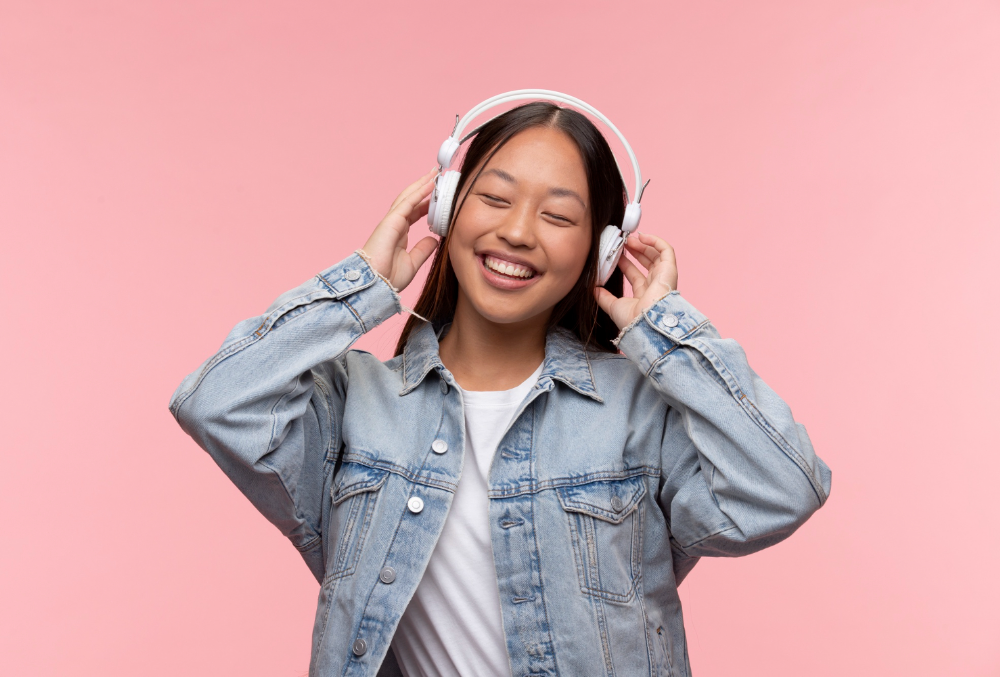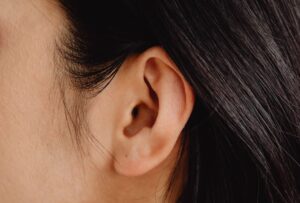Our ears, those intricate gateways to the world of sound, deserve our utmost care and attention. Just as we protect our eyesight for a lifetime of visual experiences, safeguarding our hearing ensures we can continue to engage with the world and enjoy the richness of sound throughout our lives. In this guide, we’ll explore five essential ways to take care of your hearing and maintain healthy ears.
1. Avoid Loud Noises
Loud noises are one of the biggest threats to our hearing. Prolonged exposure to sounds above 85 decibels — think concerts, construction sites, or even using headphones at high volume — can damage the delicate hair cells in the inner ear, leading to noise-induced hearing loss. This damage is irreversible, making prevention crucial.
So, how can you avoid loud noises and protect your hearing? There are several ways to keep your ears healthy and safe from noise-induced hearing loss. Start by being mindful of your sound environment. If you need to raise your voice to be heard over the background noise, it’s likely too loud. When possible, distance yourself from the source of the noise or limit your exposure time. For unavoidable loud environments, such as concerts or sporting events, wear earplugs to reduce the intensity of the sound reaching your ears.
2. Keep Your Ears Dry
While water is essential for life, excess moisture in your ears can create a breeding ground for bacteria and fungi, increasing the risk of ear infections. These infections can cause discomfort, temporary hearing loss, and even damage to the ear canal or eardrum if left untreated.
Keeping your ears dry is especially important after swimming or showering. Gently dry your outer ears with a towel, and tilt your head to each side to allow any trapped water to drain out. Avoid inserting cotton swabs or other objects into your ears, as this can push water further in or damage the delicate skin of the ear canal. If you’re prone to swimmer’s ear, consider using earplugs while swimming or using a few drops of rubbing alcohol mixed with white vinegar after water exposure to help dry the ear canal.
3. Check for Excessive Ear Wax
Earwax, while often perceived as an annoyance, actually plays a vital role in protecting our ears. It acts as a natural barrier, trapping dust, debris and bacteria, and preventing them from reaching the delicate eardrum. However, excessive earwax buildup can lead to blockages, causing discomfort, temporary hearing loss, and even tinnitus.
To determine if you have excessive earwax buildup, look for signs like a feeling of fullness in the ear, muffled hearing, earache, or tinnitus. You might even notice some earwax visible at the ear opening. However, resist the urge to dig it out with cotton swabs or other objects! This can push the wax deeper, potentially causing impaction and further complications.
4. Avoid Cotton Swabs and Other Small Objects
Cotton swabs, while seemingly harmless, can actually be detrimental to your ear health. Inserting cotton swabs into your ears can push earwax deeper into the ear canal, potentially causing impaction, damage to the eardrum, or even hearing loss.
Instead of cotton swabs, consider alternative methods for cleaning your ears. A warm, damp washcloth can be used to gently clean the outer ear. For those who produce excessive earwax, over-the-counter earwax softening drops or irrigation kits can be helpful. However, if you experience frequent earwax buildup or have concerns about your ear health, it’s always best to consult a hearing health centre for professional advice and cleaning.
5. Fine-tune Your Focus on Noise
In today’s world, we’re constantly bombarded with noise — traffic, construction, music, and the ever-present hum of technology. This constant auditory stimulation can not only be distracting but also contribute to hearing fatigue and even stress. Learning to fine-tune your focus on noise can help protect your hearing and improve your overall well-being.
Start by becoming more aware of your sound environment. Identify sources of noise that you can control, such as the volume of your television or music. When possible, create quiet spaces in your home or workplace where you can escape the constant barrage of sound. Practice active listening, focusing intently on the sounds you want to hear, such as conversations or music, while filtering out background noise. This can help train your brain to prioritise important sounds and reduce the strain on your auditory system.
By fine-tuning your focus on noise, you can create a more peaceful and harmonious auditory experience while also protecting your hearing from the detrimental effects of constant noise exposure.

Is It Possible to Improve and Cure My Hearing Loss?
While many seek ways to improve or even cure hearing loss, it’s important to understand how to prevent this condition in the first place. Our ears are fully matured and functional even before we’re born, meaning our hearing levels are potentially at their best capacity during infancy. As we age and become exposed to external factors like loud noises, viruses, and injuries, our hearing can deteriorate. This raises the question: how to stop or slow down this process?
While some causes of hearing loss, such as ear infections or earwax buildup, can be treated and reversed, age-related hearing loss and noise-induced hearing loss are typically permanent. Learning how to preserve your hearing by adopting healthy habits is crucial. There’s no magic pill or “ear exercise” that can restore lost hearing. It’s crucial to debunk the myth of ear exercises, as these can potentially do more harm than good.
Listen Closely: Safeguarding Your Auditory Future
Protecting your hearing is not merely a set of rules but a lifelong journey that requires conscious effort and mindful choices. By incorporating these five essential strategies into your daily life – avoiding loud noises, keeping your ears dry, managing earwax, saying no to cotton swabs, and fine-tuning your focus on noise — you can safeguard your hearing and maintain healthy ears for years to come.
Remember, your ability to hear is a precious gift. Cherish it, protect it, and embrace the symphony of life with open ears. Should you have any concerns about your hearing health, don’t hesitate to seek professional guidance. An audiometry test in the Philippines can provide valuable insights into your hearing status and help you take proactive steps towards preserving your auditory well-being.








